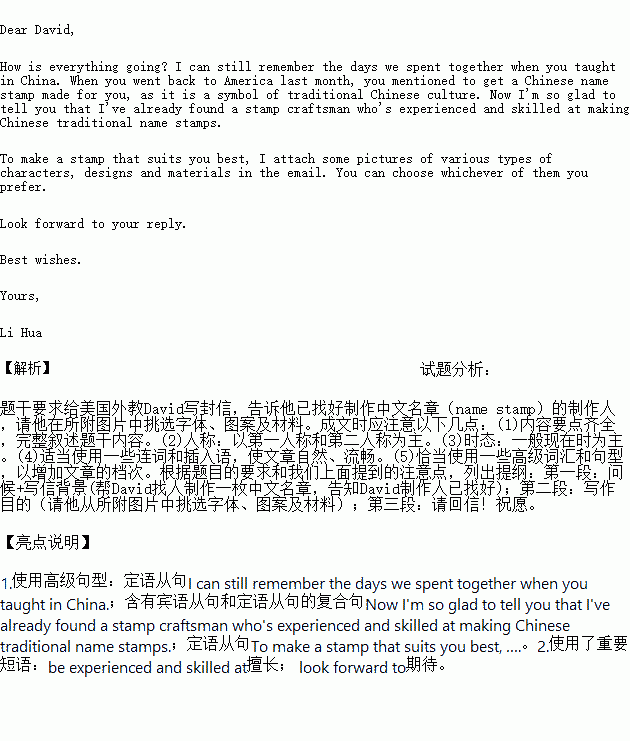题目内容
假定你是李华。你的美国外教David回国时,请你帮他找人制作一枚中文名章(name stamp)以作纪念。你已找好制作人。给他写封邮件,告知此事,并请他从所附图片中挑选字体、图案及材料。
注意:
1.词数100左右;
2.可适当增加细节,以使行文连贯;
Dear David,
_____________________________________________________________________________________
Yours,
Li hua
练习册系列答案
相关题目

